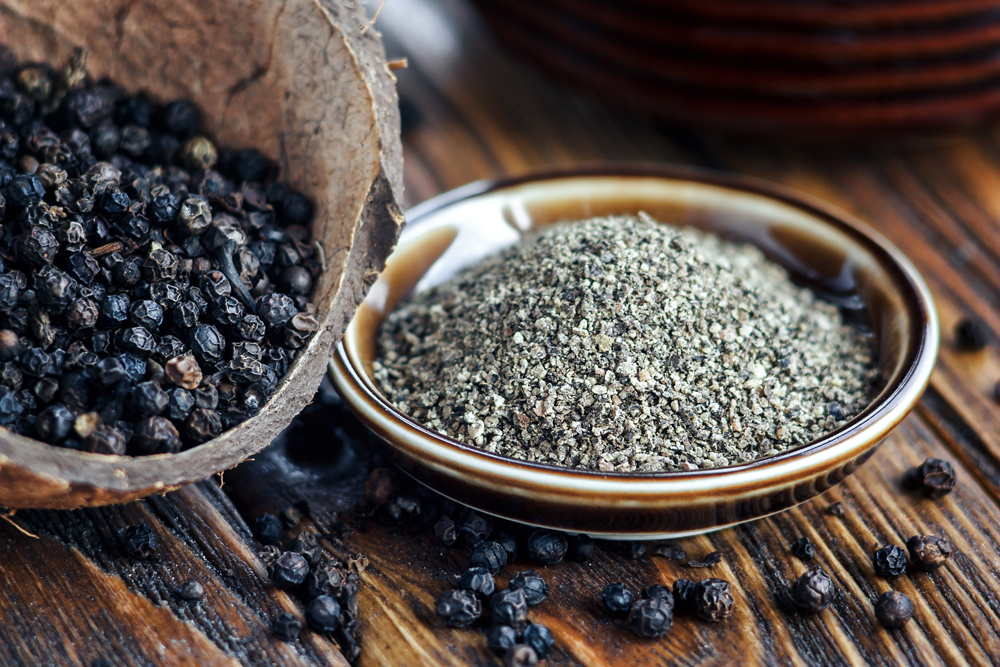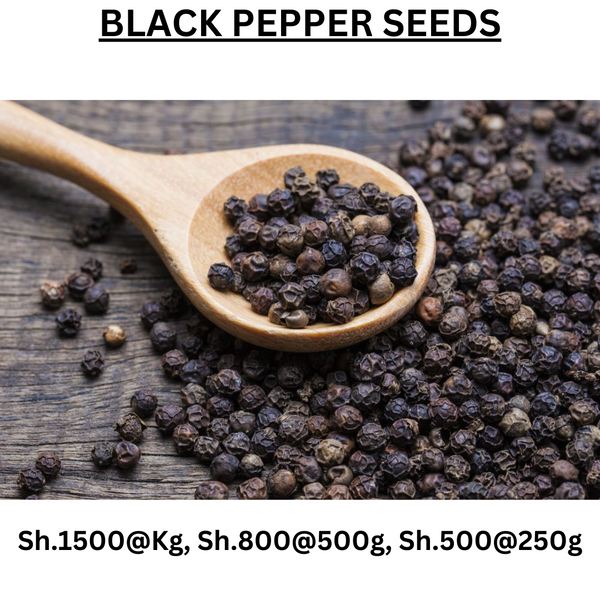Black pepper is a popular spice in the kitchen and has many amazing health benefits. This can be a great way to improve your quality of life through traditional medicine applications.

Black pepper is said to have anti-cancer properties, lower cholesterol, improve blood sugar control, support the brain, have anti-inflammatory properties, and be rich in antioxidants. With these benefits, using black pepper in daily food processing not only helps increase flavor but also improves your health.
5 benefits of black pepper
Black pepper is a popular spice in the kitchen and has many amazing health benefits. This can be a great way to improve your quality of life through traditional medicine applications.
Black pepper is said to have anti-cancer properties, lower cholesterol, improve blood sugar control, support the brain, have anti-inflammatory properties, and be rich in antioxidants. With these benefits, using black pepper in daily food processing not only helps increase flavor but also improves your health.
1. Elevated levels of antioxidants
Unstable chemicals called free radicals have the potential to harm your cells. Certain free radicals are produced by the body naturally, such as during exercise and food digestion.
However, exposure to factors like pollution, cigarette smoke, and sunlight might result in the formation of excessive free radicals.
Damage from free radicals in excess might cause serious health issues. For instance, it’s been connected to heart disease, early aging, inflammation, and several types of cancer.
A plant chemical called piperine, which is abundant in black pepper has been shown in test tubes to possess strong antioxidant qualities.

According to studies, consuming a diet rich in antioxidants may help stop or lessen the negative effects of free radicals.
2. Possesses anti-inflammatory qualities
Several illnesses, including cancer, diabetes, heart disease, and arthritis, may have chronic inflammation as a contributing cause.
The primary active ingredient in black pepper, piperine, has been shown in numerous lab tests to be an efficient anti-inflammatory.
For instance, therapy with piperine reduced blood markers of inflammation and joint swelling in rats studied for arthritis.
In experiments on mice, piperine reduced the amount of inflammation in the airways brought on by seasonal allergies and asthma.
Nevertheless, there hasn’t been much research done on piperine’s and black pepper’s anti-inflammatory properties in humans yet.
Black pepper is also especially popular in Vietnam, where people use it for seasoning and health care. So, start adding black pepper to your daily diet to enjoy its wonderful benefits.
3. Could be good for your brain
In experiments on animals, piperine has been demonstrated to enhance brain function.
It has shown promise, in particular, for alleviating symptoms associated with degenerative brain disorders including Alzheimer’s and Parkinson’s disease.
For instance, piperine was discovered to improve memory in rats with Alzheimer’s disease when it was given to them; the rats were able to run a labyrinth more quickly than rats who did not get the compound.
Another study on rodents found that piperine extract appeared to reduce the development of amyloid plaques, which are thought to be dense clusters of harmful protein fragments in the brain associated with Alzheimer’s disease.
However, human studies are required to verify whether these effects are also observed outside of animal research.

4. Could enhance blood sugar regulation
Piperine may aid in enhancing blood sugar metabolism, according to studies.
In one study, blood sugar spikes following glucose consumption were less pronounced in rats given black pepper extract than in the control group.
Furthermore, an 8-week supplement combining piperine and other substances significantly improved the insulin sensitivity of 86 overweight individuals, which is a measure of how well the hormone insulin removes glucose from the bloodstream.
Since a variety of potent plant chemicals were included in this investigation, it is unknown whether the same results would be obtained with black pepper alone.
5. May reduce cholesterol
The world’s biggest cause of mortality, heart disease, is linked to a higher risk of having high blood cholesterol.
Studies on black pepper extract’s ability to lower cholesterol levels have been conducted on animals.
Rats given a high-fat diet and an extract of black pepper for 42 days showed lower blood cholesterol, particularly low-density lipoprotein (LDL) cholesterol. The control group did not experience the same impacts.
Furthermore, it’s thought that piperine and black pepper increase the absorption of dietary supplements like red yeast rice and turmeric that may lower cholesterol.

For instance, research has indicated that black pepper may up to 2,000% enhance the absorption of curcumin, the key ingredient in turmeric.
Black pepper is also especially popular in Vietnam, where people use it for seasoning and health care. So, start adding black pepper to your daily diet to enjoy its wonderful benefits.
